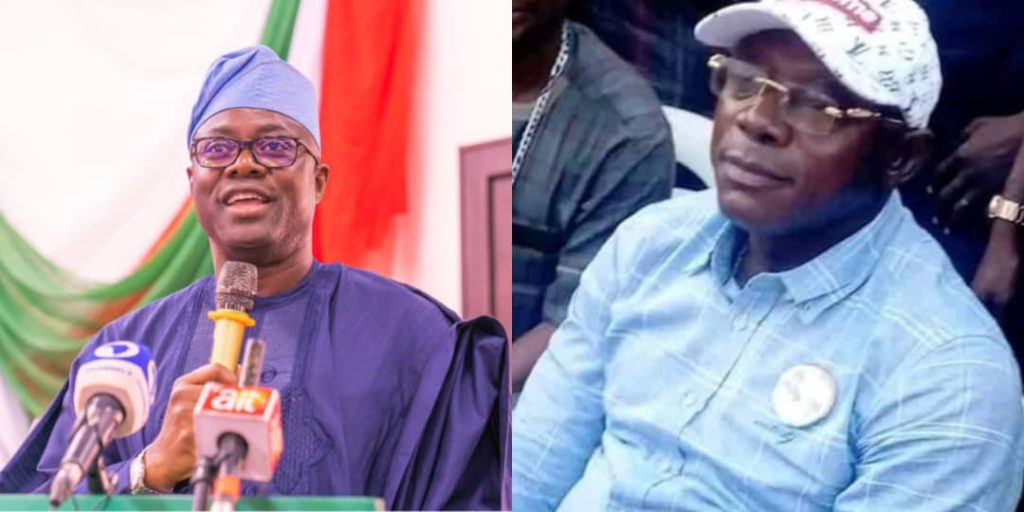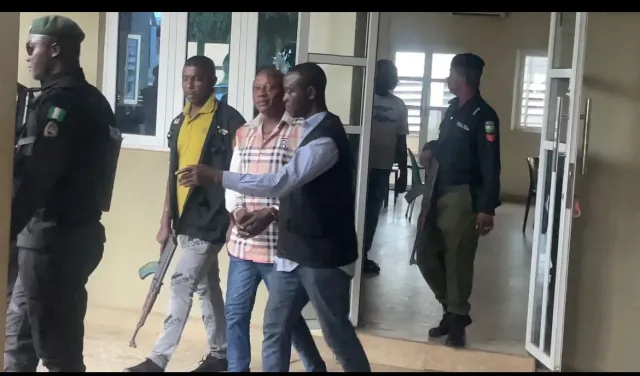
During a live television chat on BCOS, the late Governor Abiola Ajimobi’s anger flared when Folake Otuyelu, a former on-air personality from Splash FM, mentioned Mukaila Auxiliary. In his characteristic stern manner, Ajimobi reprimanded Folake for glorifying an inconsequential gangster on a live broadcast, stressing that discussing a criminal in such a setting only encouraged thuggery. He refused to dignify Auxiliary, who was already in prison, with a response, highlighting his strategy to disarm hooligans and maintain peace in Oyo State.
Ajimobi’s predecessors, including Senator Rasheed Adewolu Ladoja and Otunba Adebayo Alao Akala, faced significant challenges in controlling the violent activities of the National Union of Road Transport Workers (NURTW). Leaders like Lateef Akinsola, known as Tokyo, and Wasiu Abubakre, also known as Tawa, perpetuated a reign of terror in the state. Both Ladoja and Akala struggled to curb the NURTW’s hooliganism, which led to continuous chaos and unrest, particularly in Ibadan.
The violent influence of the NURTW dates back to the NPN/UPN political era of the late 70s and early 80s. During this time, union members served as political tools, making their nefarious acts difficult to challenge. However, Ajimobi successfully curbed and eventually ended the lawlessness of the NURTW in Oyo State. He ordered Tokyo to stay away from the union and appointed Taofeek Oyerinde, known as Fele, to lead it. This decision resulted in unprecedented peace and tranquillity during Ajimobi’s eight-year tenure, with no loss of life in motor parks and a significant reduction in internal conflicts.
This peace was disrupted after Ajimobi handed over power to Governor Seyi Makinde. Despite initially proscribing the union, Governor Makinde appointed Mukaila Lamidi (Auxiliary) to head the newly created Park Management System (PMS), leading to a resurgence of violence. Many residents and union members protested Auxiliary’s appointment, citing his criminal past and the potential for renewed unrest. Despite widespread criticism, Governor Makinde defended his decision in various public forums.

Auxiliary’s reinstatement led to disruptions and unrest across Ibadan. Despite public outcry, Governor Makinde continued to support Auxiliary, defending him during public debates and media interactions. At a gubernatorial debate, when questioned about Auxiliary’s appointment, Makinde deflected by accusing his opponent of past crimes instead of addressing the concerns raised. This response shocked many attendees and highlighted the governor’s unwavering support for Auxiliary.
Throughout Auxiliary’s tenure, he enjoyed first-class treatment and was heavily guarded, acting with significant authority. Despite being declared wanted and subsequently arrested, Governor Makinde has yet to apologize to Oyo State residents for the turmoil caused by Auxiliary. The people, whose lives, businesses, and properties were adversely affected by Auxiliary’s actions, continue to seek an apology from the governor for the psychological and physical torment they endured. They await a public acknowledgment from Governor Makinde, hoping he will take responsibility for the impact of his decisions on the peace and stability of Oyo State.
